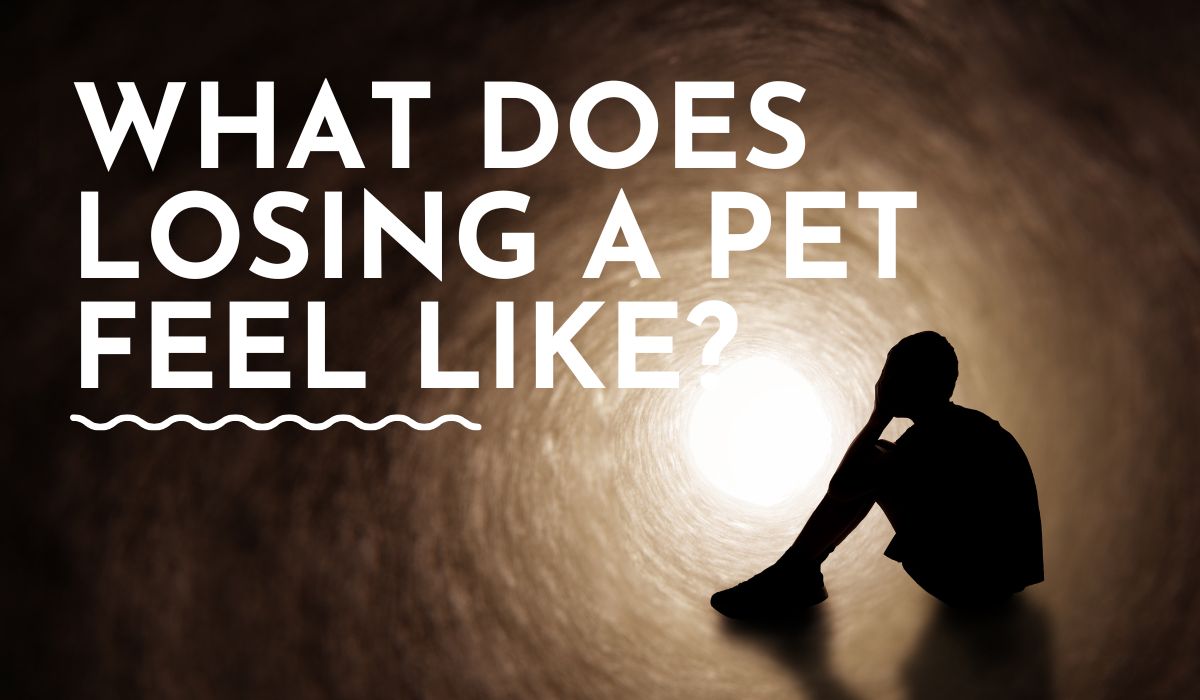Losing a pet can be a profoundly heart-wrenching experience, akin to losing a beloved family member who provided unwavering companionship and unconditional love.
These cherished animals fill our lives with joy and comfort, making their absence feel like an immense void.
The grief experienced can mirror that of losing a close friend or relative, encompassing a spectrum of emotions such as deep sadness, loneliness, and even anger or guilt.
Physically, the loss may manifest through changes in sleep patterns, appetite, and energy levels, reflecting the magnitude of the bond shared.
This is why recognizing these reactions is crucial during the natural part of the grieving process.
Over time, finding solace through memorials, leaning on the support of friends and family, or seeking professional guidance can aid healing.
Many pet owners search for understanding and direction during this difficult time, hoping to navigate their grief and find a path forward.

Emotional Impact of Losing a Pet
Losing a pet is a profound and personal experience that involves a range of emotions.
It’s a unique form of sorrow that can feel as intense as the loss of a human loved one.
Stages of Grief
When you lose a pet, you may go through various stages of grief, similar to any significant loss. These stages don’t always follow a linear path and can vary from person to person.
Denial: This can manifest as a disbelief that your pet is gone and may last for days or even weeks.
Anger: Feelings of frustration or anger can arise, often as a reaction to the helplessness you’re experiencing.
Bargaining: You might find yourself thinking about what could have been done differently to avoid the loss.
Depression: A profound sadness may settle in as you begin to process the absence of your pet’s presence.
Acceptance: Over time, you come to terms with your loss and start to find a sense of normalcy.
It’s important to recognize that these stages are not a checklist. Some may not occur, or they may happen out of order.
Common Emotions
The loss of your pet can bring about a whirlwind of common emotions, including:
• A deep sense of emptiness due to the absence of your pet’s companionship.
• Guilt from wondering if you did enough for your pet or from decision-making around their end-of-life care.
• Sadness and loneliness when the daily routine you shared with your pet is suddenly gone.
• A physical reaction, such as a loss of appetite or trouble sleeping, can also be a part of your emotional response.
Remember, expressing these emotions is part of a healthy grieving process.
Seeking support, whether through friends, family, or professional resources, can aid in managing these feelings.
Physical Responses to Loss
When you lose a pet, your body may respond in various physical ways, underscoring the profound impact the loss can have on your well-being.
Physiological Reactions
Your body might manifest grief through physical symptoms such as:
• Aches and pains: Stress and emotions related to pet loss can induce migraines, stomach aches, or muscular issues.
• Sleep disturbances: You might experience insomnia or feel excessively fatigued.
• Increased heart rate or blood pressure: The stress and anxiety accompanying grief can elevate your heart rate and blood pressure, impacting your cardiovascular health.
• Weakened immune response: The emotional strain of losing a pet can compromise your immune system, making you more susceptible to colds and other illnesses.
These reactions are more than just emotions; they’re physical states that reflect the depth of your bond with your pet.
For more detailed experiences, opinions on how these symptoms might evolve could be helpful to review on platforms discussing pet loss grief.
Behavioral Changes
You may notice changes in your daily habits and actions, such as:
• Altered eating patterns: Loss of appetite or comfort eating can be a direct response to grief.
• Withdrawal from activities: You might find yourself pulling away from social interactions or hobbies you once enjoyed.
• Difficulty concentrating: Grief can cloud your mind, making it challenging to focus on tasks or remember details, impacting work or daily responsibilities.
• Changes in routine or daily structure: Your pet’s absence might disrupt your daily schedule, making it challenging to maintain routines and creating a sense of disorientation.
As per Cleveland Clinic, these experiences and behavioral shifts are part of the grieving process and mourning the loss of a pet.
Effective Ways to Cope with Pet Loss

When you lose a pet, the grief can be profound. Developing strategies to navigate this difficult time is vital to your emotional well-being.
Memorialize Your Pet
Creating a memorial for your pet can be a deeply healing experience, allowing you to celebrate their life and cherish the beautiful memories shared.
Consider crafting a scrapbook or photo album, planting a flower, plant, or tree in their honor, or creating a dedicated space in your home with photos and mementos in their honor.
These tangible tributes are a comforting reminder of the joy your pet brought into your life, providing a sense of closure and continuity as you navigate your grief.
Practice Self-Care and Recovery
Amidst the emotional turmoil of pet loss, practicing self-care is crucial to maintaining your well-being while coping with pet loss.
Prioritize activities that nurture your body and mind, such as regular exercise, balanced nutrition, and restful sleep.
Engaging in hobbies or relaxation techniques like meditation and journaling can also help process emotions and reduce stress.
Remember, tending to your own needs is vital in building resilience and gradually healing from your loss.
Seek Support
Reaching out to friends, family, or support groups can provide comfort and understanding during this difficult time.
Sharing your feelings and experiences with those who empathize with your loss can lessen feelings of isolation and overwhelm.
Whether through in-person meetings or online communities, connecting with others who have faced similar grief can offer validation and companionship on your journey toward healing.
Explore Creative Outlets
Channeling your emotions into creative activities can be a therapeutic way to cope with the grief of losing a pet.
Consider writing a letter to your pet, painting a picture, or composing a song that expresses your feelings.
These creative endeavors can serve as emotional outlets, helping to articulate your love and sorrow while fostering a sense of connection to your pet’s memory.
Allow Yourself to Grieve
Acknowledging and accepting your grief is an essential part of the healing process.
Give yourself permission to feel and express your emotions without judgment, understanding that everyone grieves differently and at their own pace.
Whether you cry, reminisce, or seek solitude, allowing these natural responses can help you process your loss and eventually find peace.
Frequently Asked Questions
When a pet passes away, it leaves a significant void in your life.
These FAQs aim to provide guidance and support as you navigate the challenging journey of grief.
What are some comforting words to say to someone who has lost a pet?
You might express your condolences with words that acknowledge the deep bond they had, such as, “Your beloved friend was lucky to have such a loving home with you.”
What can be expected when grieving for a pet that was a companion for over a decade?
Grieving for a pet that was with you for many years can provoke intense emotions; you may experience a profound sense of emptiness, and it may take a significant period before the pain eases.
How long is the grieving process for a pet generally?
The grieving process for a pet varies significantly from person to person; some may find solace within months, while for others, it may take much longer to find a new sense of normalcy without their pet.